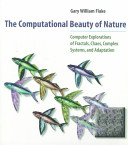Plasticity is a double-edged sword
Plasticity is a double-edged sword; the more flexible an organism is the greater the variety of maladaptive, as well as adaptive, behaviors it can develop; the more teachable it is the more fully it can profit from the experiences of its ancestors and associates and the more it risks being exploited by its ancestors and associates.
Notes:
Quoting Donald Symons: Too much plasticity and the organism can gain maladaptations, too little and it cannot adapt at all.
Folksonomies: evolution plasticity
Taxonomies:
/health and fitness/disease (0.456464)
/health and fitness/disorders (0.333308)
/science/social science/history/genealogy (0.171033)
Keywords:
double-edged sword (0.949575 (neutral:0.000000)), Donald Symons (0.763494 (neutral:0.000000)), plasticity (0.724245 (positive:0.255116)), organism (0.608851 (positive:0.359556)), ancestors (0.546525 (neutral:0.000000)), associates (0.485533 (neutral:0.000000)), behaviors (0.436773 (neutral:0.000000)), maladaptations (0.415099 (positive:0.255116)), variety (0.405756 (positive:0.463995))
Entities:
Donald Symons:Person (0.892434 (neutral:0.000000))
Concepts:
Adaptive Behavior (0.911360): website | dbpedia
Sword (0.886784): dbpedia | freebase | opencyc





